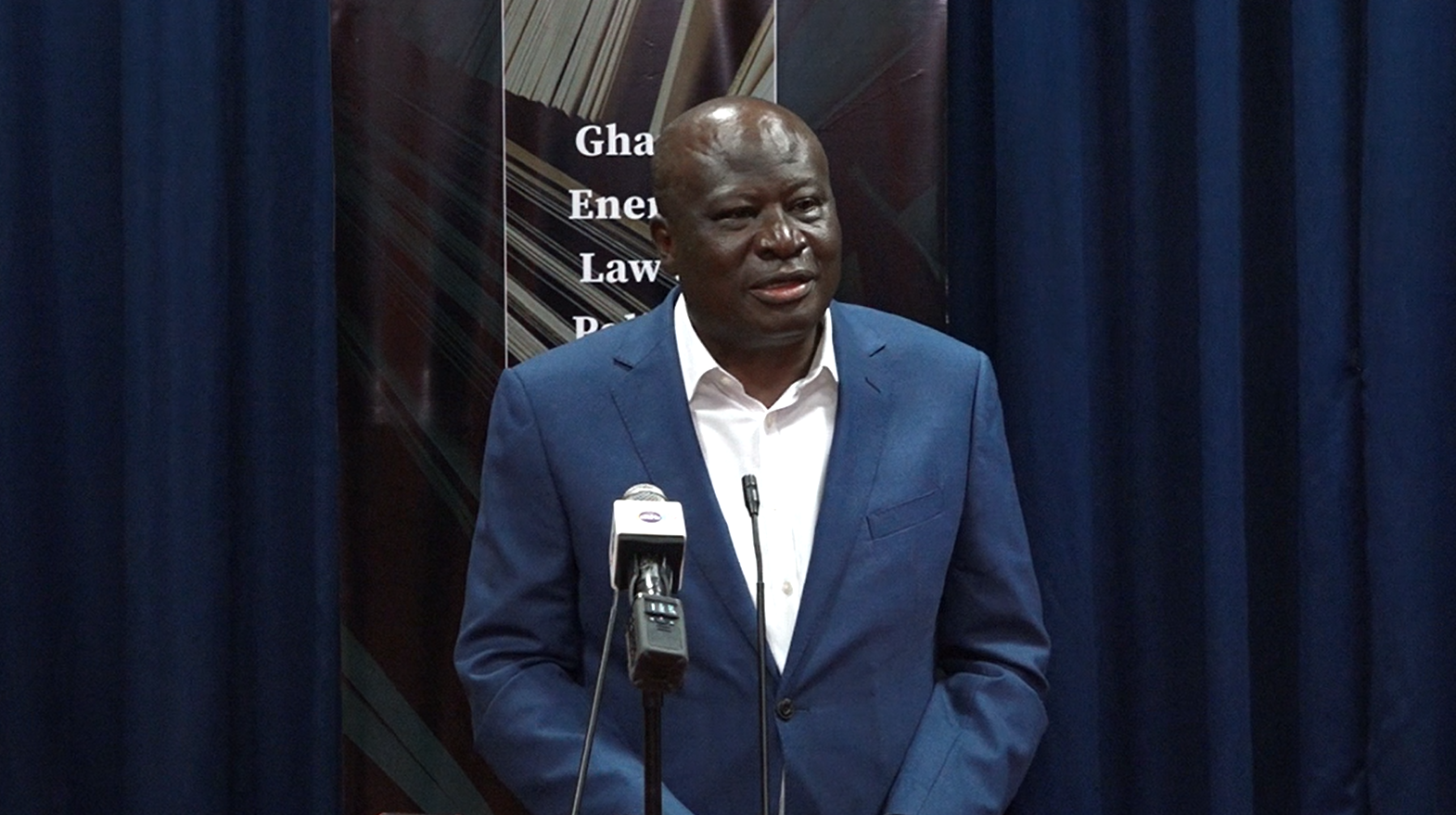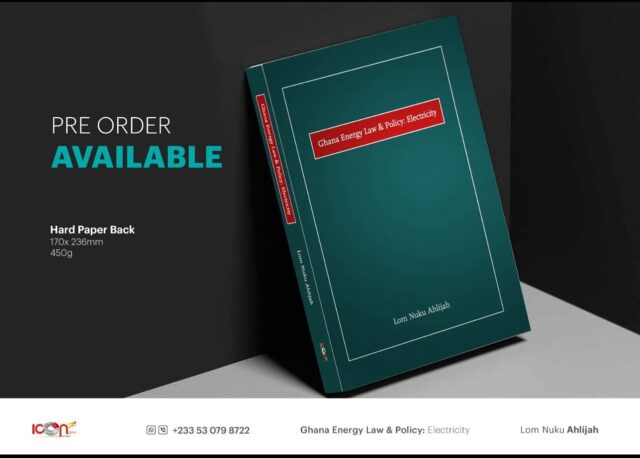In a notable event attended by key figures in the energy sector, Head of Department of the Faculty of Law at the Ghana Institute of Management and Public Administration (GIMPA), Lom Nuku Ahlijah, launched his book, “Ghana Energy Law and Policy: Electricity.”
Aimed at providing a comprehensive reference guide, the book is set to become an essential resource for stakeholders involved in the country’s electricity sector.
The launch saw the presence of notable figures and key players in the energy sector, including representatives from the Volta River Authority (VRA) and The Ghana Grid Company (GRIDCo). These industry experts contributed their views and insights on the book’s significance.
Addressing the gathering, the author Lom Nuku Ahlijah revealed that the motivation behind writing the book stemmed from Ghana’s power crisis, commonly referred to as “Dumsor.”
He also emphasized the book’s role in bridging knowledge gaps, particularly in dealings with foreign lawyers during agreements with Independent Power Producers (IPPs).

Lom highlighted the book’s potential impact, noting that policymakers can gain valuable insights to inform their decisions, regulators can deepen their understanding of their roles, and investors can discover perspectives for strategic planning.
Additionally, the book is positioned as an invaluable resource for researchers, academics, and students interested in energy policy and regulation.
Former CEO of the Volta River Authority, Ing. Kirk Koffie, who reviewed the book, commended its comprehensive coverage across the energy sector, from generation to policy formulations.
A key focus of the book is the exploration of regulatory bodies, with special attention given to the Energy Commission.

Understanding the functions of these bodies, the former VRA boss stressed, is crucial for stakeholders, including policymakers, regulators, investors, and consumers, in fostering a conducive environment for the sector’s growth.
Ing. Koffie recommended that the book be made widely accessible by placing it in university libraries, allowing students to access this valuable resource.
The launch marked a significant step toward enhancing the understanding of Ghana’s energy legal landscape, providing a foundation for informed decision-making and sustainable growth in the sector.









